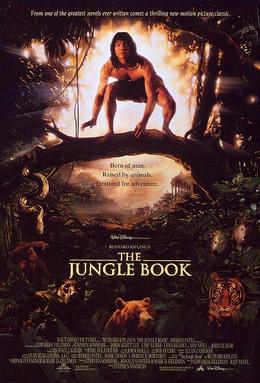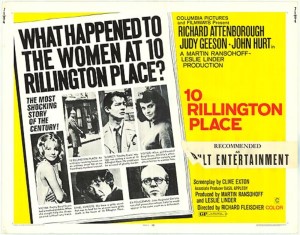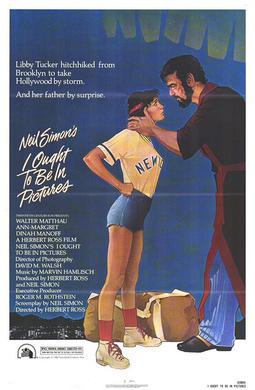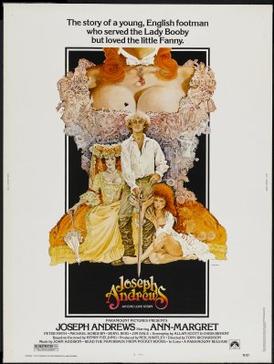
Glenda May Jackson was an English actress and politician. She was one of the few performers to achieve the American Triple Crown of Acting, having won two Academy Awards, three Emmy Awards and a Tony Award. A member of the Labour Party, she served continuously as a Member of Parliament (MP) for 23 years, initially for Hampstead and Highgate from 1992 to 2010, and Hampstead and Kilburn from 2010 to 2015, following boundary changes.

Julie Frances Christie is a British actress. An icon of the Swinging Sixties, Christie is the recipient of numerous accolades including an Academy Award, a BAFTA Award, a Golden Globe, and a Screen Actors Guild Award. She has appeared in six films ranked in the British Film Institute's BFI Top 100 British films of the 20th century, and in 1997, she received the BAFTA Fellowship for lifetime achievement.

The Ruling Class is a 1972 British black comedy film. It is an adaptation of Peter Barnes' satirical stage play The Ruling Class which tells the story of a paranoid schizophrenic British nobleman who inherits a peerage. The film co-stars Alastair Sim, William Mervyn, Coral Browne, Harry Andrews, Carolyn Seymour, James Villiers and Arthur Lowe. It was produced by Jules Buck and directed by Peter Medak.

Ann-Margret Olsson, credited as Ann-Margret, is a Swedish-American actress and singer. She has won five Golden Globe Awards and been nominated for two Academy Awards, two Grammy Awards, a Screen Actors Guild Award, and six Emmy Awards, winning in 2010 for a guest role in Law & Order: Special Victims Unit.

Hedda is a 1975 film adaptation of Henrik Ibsen's 1891 play Hedda Gabler, written for the screen and directed by Trevor Nunn, and starring Glenda Jackson, Timothy West, Peter Eyre, Patrick Stewart, and Jennie Linden. The plot involves the experiences of the title character, Hedda (Jackson), the daughter of a general, who is trapped in a marriage and a house that she does not want.

Rudyard Kipling's The Jungle Book, also known as The Jungle Book, is a 1994 American adventure film co-written and directed by Stephen Sommers, produced by Edward S. Feldman and Raju Patel, from a story by Ronald Yanover and Mark Geldman. It is a live-action adaptation of the Mowgli stories from The Jungle Book (1894) and The Second Jungle Book (1895) by Rudyard Kipling, alongside Walt Disney's animated feature film of the same name from 1967; unlike its counterparts, the animal characters in this film do not talk.

Tommy is a 1975 British satirical surrealist operetta fantasy drama film written and directed by Ken Russell and based on the Who's 1969 rock opera album Tommy about a "psychosomatically deaf, mute, and blind" boy who becomes a pinball champion and religious leader. The film featured a star-studded ensemble cast, including the band members themselves, Ann-Margret, Oliver Reed, Eric Clapton, Tina Turner, Elton John, and Jack Nicholson.

Face to Face is a 1976 Swedish psychological drama film written and directed by Ingmar Bergman. It tells the story of a psychiatrist who is suffering from a mental illness. It stars Liv Ullmann and Erland Josephson.

Don't Look Now is a 1973 English-language thriller film directed by Nicolas Roeg, adapted from the 1971 short story by Daphne du Maurier. Julie Christie and Donald Sutherland portray Laura and John Baxter, a married couple who travel to Venice following the recent accidental death of their daughter, after John accepts a commission to restore a church. They encounter two sisters, one of whom claims to be clairvoyant and informs them that their daughter is trying to contact them and warn them of danger. John at first dismisses their claims, but starts to experience mysterious sightings himself.

Agatha is a 1979 British drama thriller film directed by Michael Apted and starring Vanessa Redgrave, Dustin Hoffman, and Timothy Dalton. It was written by Kathleen Tynan. The film focuses on renowned crime writer Agatha Christie's famous 11-day disappearance in 1926. The film was released on 9 February 1979, receiving generally positive reviews from critics, who praised the production values and performances.

Yol is a 1982 Turkish film directed by Şerif Gören and Yılmaz Güney. The screenplay was written by Yılmaz Güney, and it was directed by his assistant Şerif Gören, as Güney was in prison at the time. Later, after Güney escaped from Imrali prison, he took the negatives of the film to Switzerland and later edited it in Paris.

Heat and Dust is a 1983 British historical romantic drama film, with a screenplay by Ruth Prawer Jhabvala based on her novel, Heat and Dust (1975). It was directed by James Ivory and produced by Ismail Merchant. It stars Greta Scacchi, Shashi Kapoor and Julie Christie.

The Ploughman's Lunch is a 1983 British drama film written by Ian McEwan and directed by Richard Eyre which stars Jonathan Pryce, Tim Curry and Rosemary Harris.

The Go-Between is a 1971 British period drama film directed by Joseph Losey. Its screenplay by Harold Pinter is an adaptation of the 1953 novel The Go-Between by L. P. Hartley. The film stars Julie Christie, Alan Bates, Margaret Leighton, Michael Redgrave and Dominic Guard. It won the Palme d'Or at the 1971 Cannes Film Festival.

10 Rillington Place is a 1971 British crime film. The film stars Richard Attenborough, Judy Geeson, John Hurt and Pat Heywood and was directed by Richard Fleischer, produced by Leslie Linder and Martin Ransohoff. It was adapted by Clive Exton from the book Ten Rillington Place by Ludovic Kennedy.

The Prime of Miss Jean Brodie is a 1969 British drama film directed by Ronald Neame from a screenplay written by Jay Presson Allen, adapted from her own stage play, which was in turn based on the 1961 novel of the same name by Muriel Spark. The film stars Maggie Smith in the title role as an unrestrained teacher at a girls' school in Edinburgh. Celia Johnson, Robert Stephens, Pamela Franklin, and Gordon Jackson are featured in supporting roles.

I Ought to Be in Pictures is a 1982 American comedy-drama film directed by Herbert Ross and based on Neil Simon's 1980 play of the same name. The film stars Walter Matthau, Ann-Margret, and Dinah Manoff. Other actors who have supporting roles are Lance Guest, Eugene Butler, David Faustino, Martin Ferrero and Michael Dudikoff.

Joseph Andrews is a 1977 British period comedy film directed by Tony Richardson. It is based on the 1742 novel Joseph Andrews by Henry Fielding.

C.C. and Company is a 1970 American biker film directed by Seymour Robbie. It starred Joe Namath as biker C.C. Ryder, Ann-Margret as fashion journalist Ann, and William Smith as Moon, the leader of the fictitious outlaw biker club the "Heads Company". The film also features singer Wayne Cochran and his band The C.C. Riders.
The Return of the Soldier is the debut novel of English novelist Rebecca West, first published in 1918. The novel recounts the return of the shell shocked Captain Chris Baldry from the trenches of the First World War from the perspective of his cousin Jenny. The novel grapples with the soldier's return from World War I with mental trauma and its effects on the family, as well as the light it sheds on their fraught relationships.



















